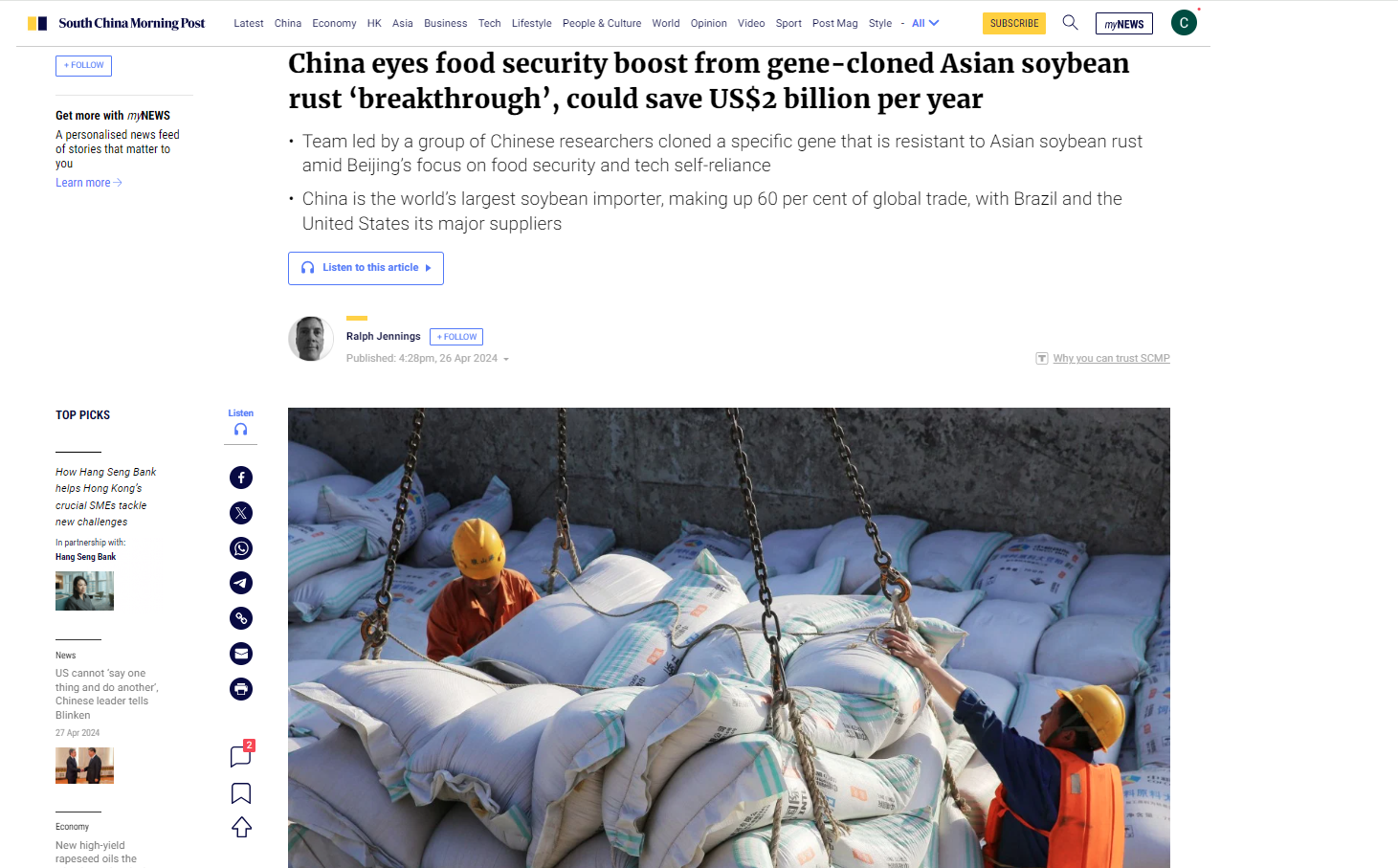LATEST INSIGHTS
Your Present Location: LATEST INSIGHTSZhao Xijun: China eyes food security boost from gene-cloned Asian soybean rust ‘breakthrough’, could save US$2 billion per year
Source: SCMP Published: 2024-04-26

Chinese researchers have found a way to avert a fatal soybean plant disease that afflicts Latin American exports to China and undercuts Beijing’s drive for food security.
The team, led by a group of Chinese researchers with the Oil Crops Research Institute within the Chinese Academy of Agricultural Sciences, have cloned a specific gene that is resistant to Asian soybean rust, said a paper published last week in Nature Communications – a peer-reviewed journal under the Nature Portfolio.
Asian soybean rust – a fungal infection which shows up as brownish or grey spots on a plant’s lower leaves – is also ubiquitous in Latin America, with the severe disease found in all major soybean producing regions.
Chemical control is the only method so far found to control the disease due to limited resistant soybean germplasm, or genetic resources, said the paper.
The new solution to Asian soybean rust, which is caused by phakopsora pachyrhizi, would ensure China has access to more of the key ingredient used for oil, protein and livestock feed.
China is the world’s largest soybean importer, making up 60 per cent of global trade, with Brazil and the United States its major suppliers.
Latin America supplies most of China’s imported soybeans, but its crop loses US$2 billion per year to rust disease, said Alberto Vettoretti, a managing partner at business management consultancy firm Dezan Shira & Associates.
Beijing has increased food security efforts and tech self-reliance amid climate change and geopolitical uncertainty that have the potential to impact trade and disrupt the global market.
“If science and technology can help ensure the safety of the crop, then it’s useful,” said Zhao Xijun, a finance professor at Renmin University in Beijing.
“Soybeans are very important for China. They’re good for agricultural security.”
China’s soybean imports grew by more than 11 per cent last year to 99.41 million tonnes compared to 2022, according to customs data.
Severe outbreaks of Asian soybean rust can override fungicide treatment and completely defoliate soybean plants within two weeks, according to the Ohio State University Extension in the United States.
Gene cloning as a solution to rust disease marks “a breakthrough from zero to one”, the Oil Crops Research Institute said on Wednesday.
The scientists spent 30 years examining soybean rust disease, with researchers successfully cloning the Rpp6907 resistant gene, the institute added.
“The broad-spectrum, durable soybean rust resistance gene was cloned from soybeans for the first time in the world, providing valuable genetic resources for soybean rust resistance breeding,” it said.
The use of rust-resistant genes, protected by Chinese intellectual property rights, would increase soybean production in Latin America and may reduce import prices “due to higher yields and cost savings”, Vettoretti added.
Key Words: Zhao Xijun, China, Food Security























































































 京公网安备 11010802037854号
京公网安备 11010802037854号





